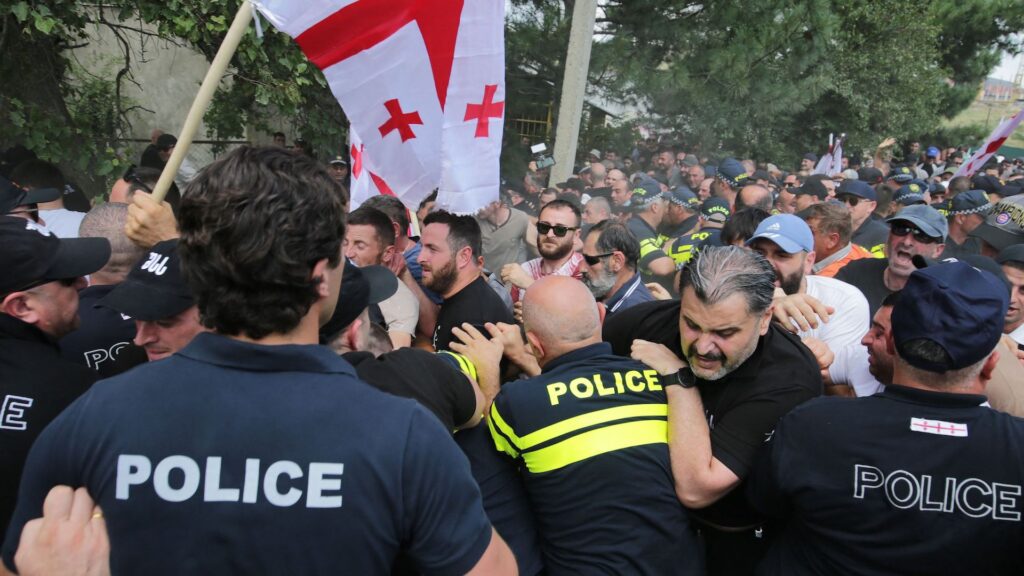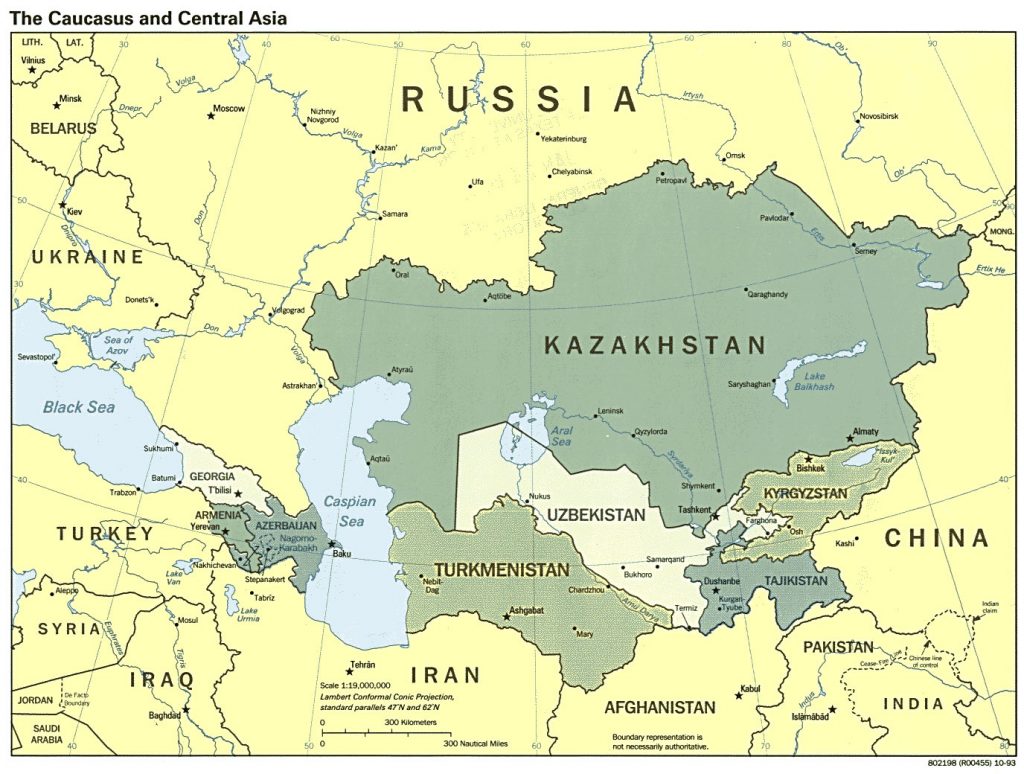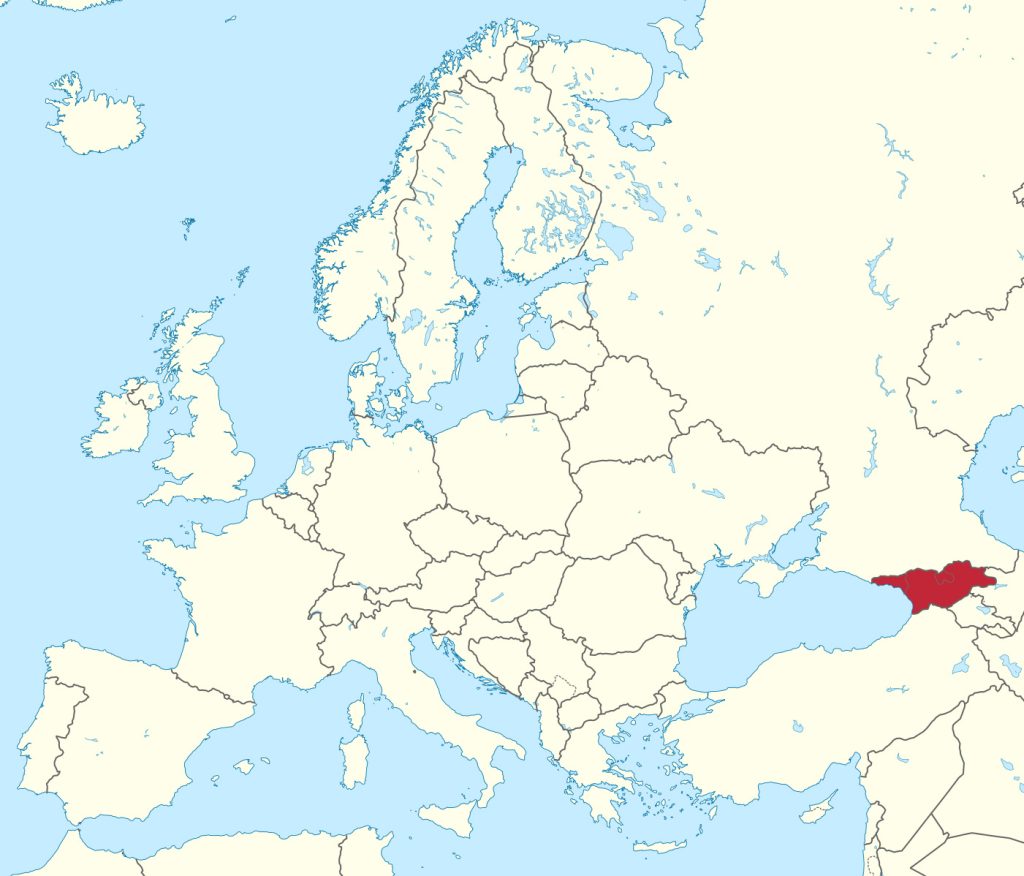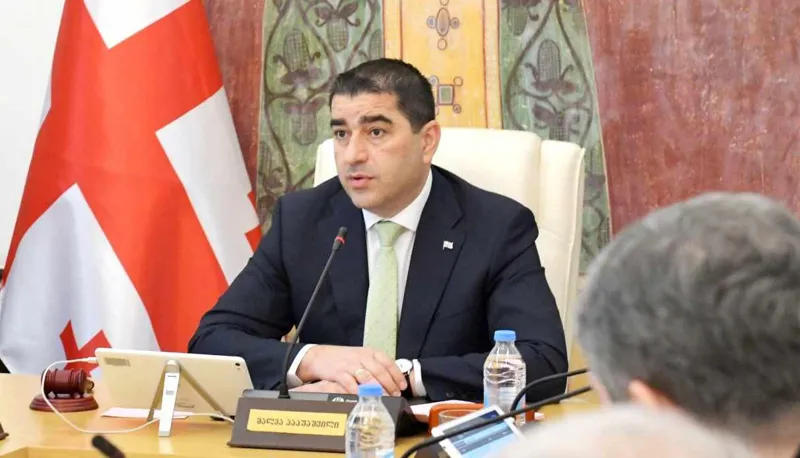Push toward anti-‘gay propaganda’ laws in two former Soviet republics
Colin Stewart is a 45-year journalism veteran living in Southern…
Parliament of Georgia advances anti-LGBT bill similar to what a Kazakhstan petition seeks.

Two former Soviet republics are considering Russian-style anti-LGBTQ laws.
Neither the nation of Georgia nor that of Kazakhstan is considering criminalizing same-sex intimacy, but both are dealing with proposals for laws against so-called “gay propaganda”, which is a homophobic label for any public comment endorsing or tolerating homosexuality.
In Kazakhstan, a petition against “LGBT propaganda” has received more than 50,000 signatures, meaning Kazakhstan’s Ministry of Culture and Information must consider it. Local observers expect that proposal to fail.
In Georgia, anti-LGBT action seems more likely: The parliament gave initial approval last week to legislation that would prohibit both “propaganda” of same-sex relationships and gender reassignment surgery.

The Times of Central Asia reported about Kazakhstan:
Controversial Petition on “LGBT Propaganda” Passes Threshold for Consideration in Kazakhstan
A petition against so-called “LGBT propaganda” has received more than 50,000 signatures, meaning Kazakhstan’s Ministry of Culture and Information must consider it. However, a number of experts believe that restrictions on the gay community would damage Kazakhstan’s image. In addition, the petition’s authors are known for their controversial initiatives.
The Kazakhstan Parents’ Union is the author of the petition “We are Against Open and Concealed LGBT Propaganda in the Republic of Kazakhstan,” which was published on the official E-Petition.kz portal. According to Article 90-4 of the Administrative Procedural Code, the government must consider a petition with 50,000 signatures. …
A number of public figures have come out against such a ban even being discussed in the halls of government. Feminist and activist Aigerim Kusayynkyzy believes that the recent petition violates basic rights enshrined in the constitution.
“Persecution of a person for their sexual orientation and gender identity is a gross violation of their rights. The number of countries facing the crisis of homophobia is growing every day. Together with human rights experts, we are raising the issue of how to combat homophobia. If you want to become a leading country in terms of human rights, I hope such inhumane laws will not be passed,” she said on social media.”

Reuters reported about Georgia:
Georgian parliament gives initial approval to sweeping curbs on LGBT rights
Georgia’s parliament on [June 27] gave its initial approval to a set of bills containing sweeping curbs on LGBT rights, including bans on the “propaganda” of same-sex relationships and gender reassignment surgery.
The package, which was proposed by the ruling Georgian Dream party and which could outlaw Pride events and public displays of the LGBT rainbow flag, was approved by a majority of deputies. It must pass two more readings before becoming law.

Parliamentary speaker Shalva Papuashvili said earlier this month that lawmakers would only vote on the bills’ second and third readings during the autumn parliamentary session, in the immediate run-up to a general election scheduled for Oct. 26.
He has said the bills are necessary to control “LGBT propaganda” which he said was “altering traditional relations”.
The legislation would also ban non-heterosexual people from adopting children and prevent people from changing their gender on ID documents. Public gatherings promoting same-sex relationships would not be allowed either.
If approved, “LGBT propaganda” in the education system would be outlawed and broadcasters banned from showing intimate scenes involving same-sex relationships.
LGBT rights are controversial in deeply religious Georgia, where the country’s Orthodox Church enjoys wide public respect.
Opinion polling shows widespread disapproval of same-sex relationships, while [the capital city of] Tbilisi’s annual Pride march has repeatedly faced physical attacks by conservative protesters. Georgia’s constitution bans same-sex marriage.
Giorgi Tabagari, founder of Tbilisi Pride, said that the bills would make life “unbearable” for LGBT Georgians.
He said: “The future for queer people in Georgia looks rather gloomy if the anti-LGBT bills are adopted.”
The vote comes amid political tension in the South Caucasus country after a series of huge protests against a bill on “foreign agents” that was signed into law [last month]
The proposed measures are likely to fuel European Union and U.S. concerns about Georgia’s political direction, following their criticism of the foreign agent law that critics see as Russian-inspired and repressive.
The European Union’s ambassador to Georgia said last week the country’s process to join the bloc had been effectively halted by the legislation.
Traditionally pro-Western since independence following the 1991 Soviet collapse, Georgia has recently moved to restore ties with Russia, which has imposed its own curbs on LGBT rights.




